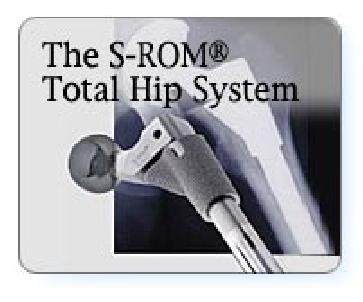

My THR was done on March 26, 2003 --I am one of those for whom the recovery process was not much more uncomfortable nor eventful than a bad cold. . .
>SIGRID: "If possible, try to stay physically active before your surgery."
This was automatic for me since we have no car and we use public
transportation sparingly--we do almost all transport by bike
or foot. Walking had become very painful by the time of
surgery, but I was still able to bike [mostly on back of a
tandem, w/ my husband captaining], and I bicycled to the
hospital for the surgery.
>SIGRID: "A drunk driver had hit me when I was in my 20s and I had
broken about thirteen bones including a fracture and
dislocation of my left hip. After the accident, I was told
that the hip would eventually have to be replaced..."
I was 33 when I fractured the femur in a [single] bicycle
accident. I had a pin inserted that was removed the next year.
I was about 50 when I broke the hip by falling on black-ice,
again on my own bicycle. This time the surgeon inserted a
permanent Richards Screw. In 2002 my husband and I went down
on the tandem when its fork failed and the bike kind of flew apart.
I thought that my major injury was a slightly dislocated
clavicle, but over the weeks rotator-cuff injury symptoms
developed in *both* shoulders, and the hip deterioration that
had been happening very slowly accelerated. Soon I made the
decision to talk about hip replacement and found that the
surgeons I spoke with thought that I was in much worse shape
than I did. [I am 62, so I didn't need to fight the 'you're
too young' thing. Also, I'm in the USA so I didn't have the
long wait that she had to endure]
>SIGRID: "I was in agony for the last six months before the surgery."
I never had unbearable pain: my worst pain occurred when I
was actually walking, and while it was bad, I couldn't
honestly call it 'agony'.
>SIGRID: "One of the most important things that I did before my
surgery was to organize my wardrobe."
I needed loose pants and soft, loose-necked or button-front
tops: the rotator-cuff pain in both shoulders was fully as
bothersome as the hip pain [perhaps even more painful] in the
weeks just before surgery.
>SIGRID: "I also made up a master list of friends who I could call to
help me out..."
I have one very supportive husband, so I skipped all the rest.
 Eli--one very supportive husband
Eli--one very supportive husband
>SIGRID: "I did not donate my own blood because I am a fainter."
I tried, but they stopped the process when I became faint.
I did need a single transfusion after surgery.
>SIGRID: "Sometimes one leg is shorter than the other following hip surgery."
Here I really had a combination of good luck and an excellent
surgeon. The distorted walking gait and scoliosis of long standing
had made me so lopsided before the surgery that my surgeon was
able to calculate just what he would have to do to make me
straighten out after it--now I'm close to symmetrical for the
first time in years.
>SIGRID: "My anesthesiologist told me that I could have a general
anesthesia or a local anesthesia, otherwise known as a spinal, with
a light intravenous sedation."
I was not offered a spinal option, perhaps because the surgery
required not only replacing the hip but removing the Richards
screw, a metal device that is much more than a hardware store
'screw'.
The surgery was the complete success that I had
expected--after all I had a surgeon who was not only a technical
master and an active contributor to the development of joint
replacement procedures, but also a man with a fine bedside manner and
an eagerness to give us as much information as we could absorb about
the procedure, Dr. James Stiehl.

>SIGRID: "you will need to sleep with a pillow in between your legs for
several weeks to ensure that you do not accidentally cross your legs
in the middle of the night."
I never needed the pillow--my shoulder pain was so bad at the
time that I had automatically come to sleeping quietly on my
back--I, who used to be such a restless sleeper...
>SIGRID: "I was more worried about my low blood sugar and my
fibromyalgia than I was about the orthopedic end of things."
I was more worried about my shoulders.
>SIGRID: "I was given an uncemeted hip made out of cobalt and titanium."
I was too. My surgeon used an anterior procedure to open the
area. This apparently has a much better record in avoiding
dislocations of the prosthesis than the usual US method of
going in from the posterior.
>SIGRID: "I don't remember too many details about the first week
because I was so sick."
From this time on, our histories diverge dramatically.
My recovery has been rapid and uneventful.
I was up on a walker as soon as the anaesthetic wore off.
I was out of the hospital in 6 days [it would have been 5 if I
hadn't needed that blood transfusion] I used the walker for 2
weeks and then transferred to crutches because I had a walker
w/ small wheels that kept falling into every crack in the sidewalk--I
rapidly found out how badly maintained our sidewalks are!
>SIGRID: "Don't make this mistake. Don't try to be tough and tolerate
the pain during the first 7 to 10 days by cutting your meds."
This decision must be made in a very individual context. I
never took any pain medication [other than the actual
anaesthesia] directly before or after the surgery. In the
months before the surgery the only pain meds I took were
several aspirin. I wouldn't necessarily advise this regimen to
anyone else. I think I might be one of those genetic variants who
don't experience pain as fiercely as other people do. I can
also be quite stoic about pain that I expect to be a temporary
phenomenon. I'm not at all good at dealing w/ pain if it's
expected to last for a lifetime.
>SIGRID: "She [Sigrid's aunt] had also mentioned that immediately
after her surgery when she went to stand up on her leg, the pain in
her hip was entirely gone."
That was the worst part of my recovery. I, too, had heard such
stories, and I was terrified that 3 weeks after surgery the hip
pain that had finally sent me into surgery seemed completely
unchanged, not unbearable, but certainly nothing that I wanted
to live with for the rest of my days. Fortunately I had enough
confidence in my surgeon to believe him when he assured me that
this was simply pain from the incision and would soon begin to ebb.
>SIGRID: "I had to rent or buy all kinds of things starting with a
special handheld shower nozzle, two raised toilet seats, a bathtub
transfer bench, three walkers (!!!), a cane, two reachers and a sock
aid."
I needed to buy very little. I bought a 'hip-replacement'
package with reacher, sock aid, back scrubber and one or two
other specialized gadgets in the hospital pharmacy. My walker
was covered by insurance and delivered to me in the hospital
room. I already owned crutches and cane from various mishaps my
husband and I had experienced over the years. I owned a shower
bench that we had used to bathe my mother-in-law when she spent 17
months with us at the end of her life. I'm only 5' tall and we
discovered in the hospital that I therefore just didn't need a
raised toilet seat.
>SIGRID: "USEFUL TIP: It will not help to swear at your sock aid!"
Strange. I got along very well with my sockaid. It always
worked perfectly. It seemed such a simple thing that I tried to make
my own [I don't remember why, since I did have one in that package],
but I could never get my feeble attempt to work.
>SIGRID: "As I make this entry today, July 15, 2003 it has been
exactly three months since my hip surgery. I'm functioning
well on my cane but cannot walk long distances unless I am
using the walker."
July 28, 2003. It is now just about 4 months since my hip
surgery. I feel that recovery is now complete; I could have
said this a month ago too. I still have some pain when walking
stairs or steep hills, but I expect that this will always be
true. I consider this insignificant, but I won't complain if
healing continues and even this mends itself [I've been told
that healing can continue for about a year].
I stopped using the crutches at 6 weeks after surgery--I left
the doctor's office with permission to walk without them and I
walked from there to a custard stand 1 mile away using a single
crutch. I celebrated my new freedom with an ice-cream cone,
took a bus home and rode 13 miles on the tandem that afternoon.
I used a cane for about 2 weeks after that.